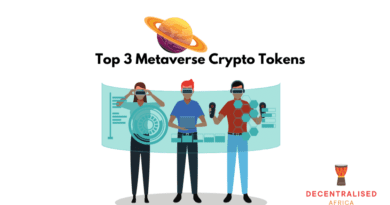Quantum Computing and the Future of Cryptography & Blockchain Security
In an era where digital security forms the backbone of global financial systems, blockchain technology has been hailed as a revolutionary leap in ensuring decentralized and tamper-proof transactions. However, the rapid advancements in quantum computing are casting long shadows on the current cryptography methods underpinning blockchain security. This emerging scenario begs an essential question: How will quantum computing alter the landscape of blockchain and cryptography, and what steps can we take now to prepare for a quantum-resistant future?
The Quantum Threat to Blockchain Security
At its core, blockchain relies on cryptographic algorithms to secure transactions and create a trustless environment. Presently, methods such as the Elliptic Curve Digital Signature Algorithm (ECDSA) and Secure Hash Algorithms (SHA-256), used in cryptocurrencies like Bitcoin, rely on the computational difficulty of certain mathematical problems. Traditional computers, even the most powerful ones, would require an impractical amount of time to break these encryptions.
Enter quantum computing. Quantum computers operate on qubits, which can represent 0, 1, or both simultaneously, thanks to the quantum mechanics principles of superposition and entanglement. This ability allows them to process vast amounts of data at speeds unattainable by classical computers. Problems that current cryptographic algorithms base their security on, like factoring large numbers or finding discrete logarithms, could potentially be solved exponentially faster by quantum computers. For example, Shor’s Algorithm, a quantum algorithm for integer factorization, could crack RSA encryption, a widely used security method, in mere seconds – a task that would take a classical computer thousands of years.

Preparing for the Quantum Revolution
The quantum threat, while still in its infancy, is real and imminent. The transition to quantum-resistant cryptography must begin now to safeguard blockchain technology in the post-quantum world. Here are the key initiatives and solutions:
- Post-Quantum Cryptography (PQC): The National Institute of Standards and Technology (NIST) is actively leading efforts to standardize new cryptographic systems resistant to quantum computing attacks. These algorithms are based on mathematical problems considered hard for quantum computers, such as lattice-based cryptography, hash-based cryptography, and multivariate polynomial cryptography. Implementing these algorithms in blockchain infrastructures can ensure long-term security.
- Hybrid Cryptographic Systems: Transitioning entirely to PQC might not be immediately feasible. As an interim solution, combining quantum-resistant algorithms with current cryptographic methods can offer enhanced security. This hybrid approach ensures compatibility with existing infrastructure while steadily moving towards a quantum-resistant future.
- Quantum Key Distribution (QKD): QKD utilizes the principles of quantum mechanics for secure communication, making it virtually immune to computational hacks. Integrating QKD with blockchain can create a secure method for key exchange, thereby fortifying blockchain against quantum attacks.
- Education and Awareness: Building awareness about quantum computing’s potential impact on cryptography is vital. Stakeholders, including developers, businesses, and policymakers, must be educated about the risks and the need for quantum-safe cryptography to spur investment and research in this field.
The Future is Quantum-Resilient
The dawn of the quantum computing era brings with it challenges and opportunities. For blockchain, it necessitates an evolution in its cryptographic foundation. By proactively adopting post-quantum cryptographic methods and focusing on developing quantum-resistant technologies, the blockchain community can ensure that the security and reliability of this transformative technology remain unchallenged in the face of quantum advancements.
In conclusion, the intersection of quantum computing and blockchain is not a distant theory but a forthcoming reality. As we stride into this new era, the fusion of pioneering quantum-resistant techniques with the ingenuity of blockchain technology will be critical in crafting a secure digital future, cementing blockchain’s position as a bedrock of secure, decentralized technology in a quantum world









